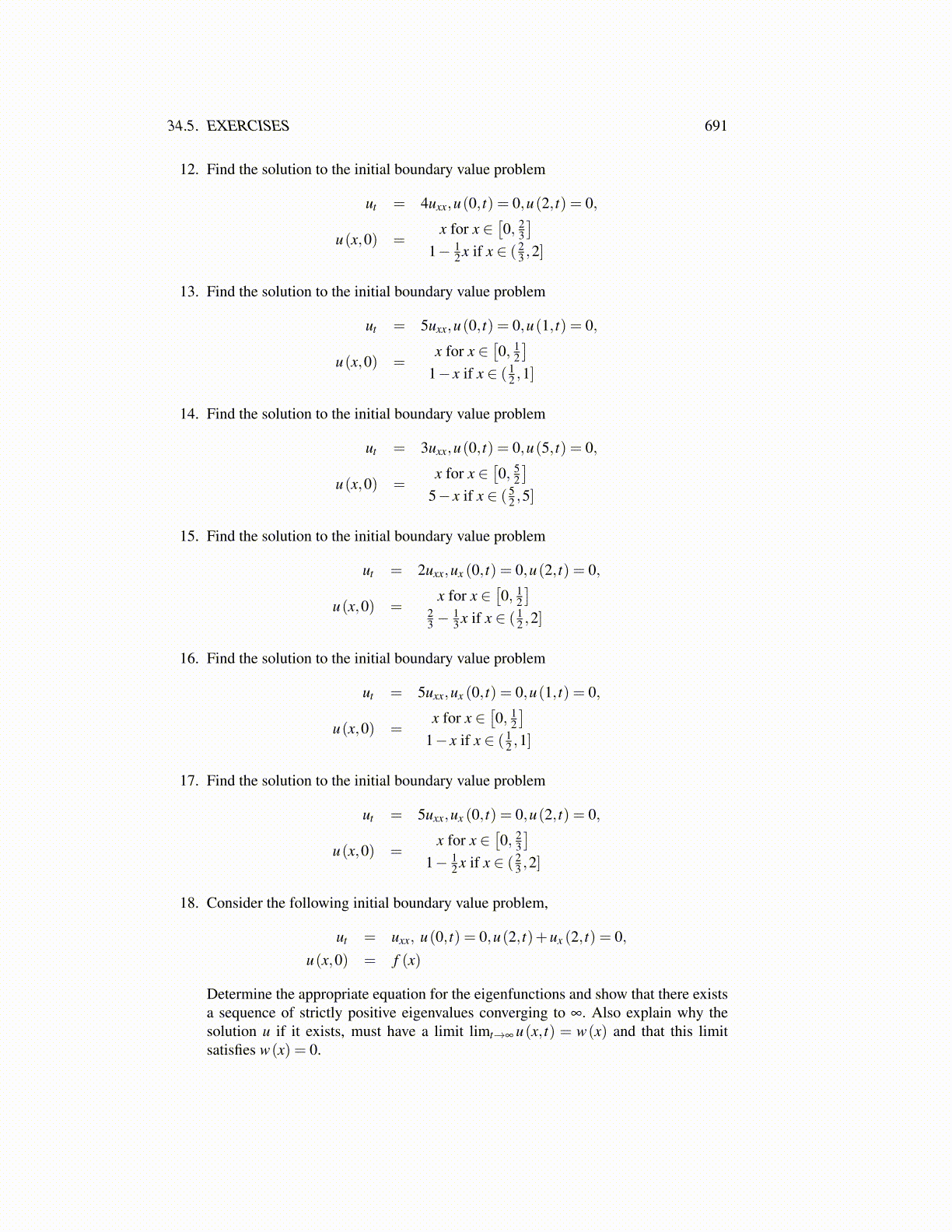
34.5. EXERCISES 691
12. Find the solution to the initial boundary value problem
ut = 4uxx,u(0, t) = 0,u(2, t) = 0,
u(x,0) =x for x ∈
[0, 2
3
]1− 1
2 x if x ∈ ( 23 ,2]
13. Find the solution to the initial boundary value problem
ut = 5uxx,u(0, t) = 0,u(1, t) = 0,
u(x,0) =x for x ∈
[0, 1
2
]1− x if x ∈ ( 1
2 ,1]
14. Find the solution to the initial boundary value problem
ut = 3uxx,u(0, t) = 0,u(5, t) = 0,
u(x,0) =x for x ∈
[0, 5
2
]5− x if x ∈ ( 5
2 ,5]
15. Find the solution to the initial boundary value problem
ut = 2uxx,ux (0, t) = 0,u(2, t) = 0,
u(x,0) =x for x ∈
[0, 1
2
]23 −
13 x if x ∈ ( 1
2 ,2]
16. Find the solution to the initial boundary value problem
ut = 5uxx,ux (0, t) = 0,u(1, t) = 0,
u(x,0) =x for x ∈
[0, 1
2
]1− x if x ∈ ( 1
2 ,1]
17. Find the solution to the initial boundary value problem
ut = 5uxx,ux (0, t) = 0,u(2, t) = 0,
u(x,0) =x for x ∈
[0, 2
3
]1− 1
2 x if x ∈ ( 23 ,2]
18. Consider the following initial boundary value problem,
ut = uxx, u(0, t) = 0,u(2, t)+ux (2, t) = 0,u(x,0) = f (x)
Determine the appropriate equation for the eigenfunctions and show that there existsa sequence of strictly positive eigenvalues converging to ∞. Also explain why thesolution u if it exists, must have a limit limt→∞ u(x, t) = w(x) and that this limitsatisfies w(x) = 0.